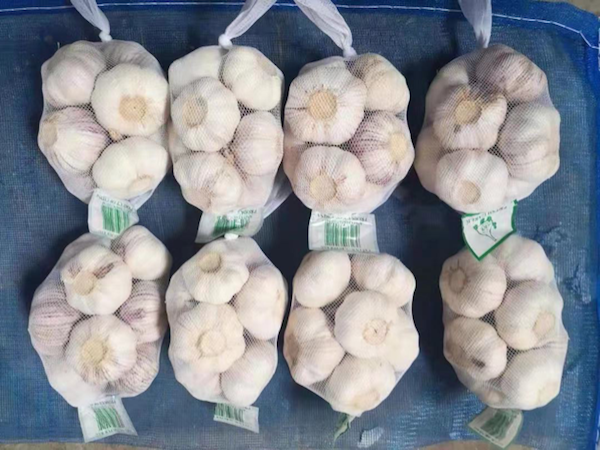New cases of Covid-19 in many production areas caused panic in the Chinese garlic market in early August. Some traders and farmers were worried that stricter policies would interrupt trade and those traders with storage, wholesale dealers, and processing factories, all withdrew from the production areas. The supply volume grew, but the number of clients suddenly dropped, and so the price fell.
"This month the price dropped because of a panic in the Chinese garlic market. Apart from garlic in storage, there is only a small supply volume of garlic, and its product quality is falling. The garlic that is not kept in storage can only be sold for about 2-3 weeks. However, market demand rapidly decreased earlier this month. Still, there is always a certain degree of market demand. That is why the price of garlic has already begun to stabilize. The price decline is likely to turn around in the next few weeks." This is according to Ms. Annie Chen, Sales Manager at Jining Fenduni Foodstuff Co., Ltd.

Garlic
There were many different factors that played a role in the price decline. First, garlic began to sprout early as a result of flooding, typhoons, and high temperatures. That makes the garlic more difficult to store, and farmers more willing to sell their stock. Second, garlic entered storage about 7-10 days later than in previous years. The period in which garlic is stored is now coming to an end and traders with storage buy less garlic than before. Third, the rising shipping cost and the shipping container shortage reduced overseas demand for Chinese garlic.
Ms. Annie Chen added, "the flooding and typhoons in Henan did not have a direct impact on garlic production areas in Jinxiang, the hometown of Chinese garlic, but some traders from Henan came to Jinxiang to buy and store their garlic there, which pushed the price of garlic in Jinxiang up. Still, I think the impact of flooding will only have a small impact on the Chinese garlic market as a whole."
At the moment, Jining Fenduni Foodstuff primarily exports garlic to Africa, the Middle East, and Eastern Europe. According to Ms. Annie Chen, "traders with garlic in storage will begin to supply the market from the middle of September onward. The overall export price of Chinese garlic is still higher than last year. But the pandemic is still severe in Africa and South America. In addition, shipping costs are still rising. This will definitely have an impact on Chinese garlic export. However, we are not too worried. There is always overseas demand for Chinese garlic. And we have worked hard for many years to create a loyal client base."
For more information:
Ms. Annie Chen - Sales Manager
Jining Fenduni Foodstuff Co., Ltd.
Skype: fenduni5
WhatsApp: + 86 18678710377
WeChat: + 86 18678710377
Viber: + 86 18678710377
E-mail: annie@china-garlic.com
Website: www.garlics.com
Website: www.china-garlic.com
